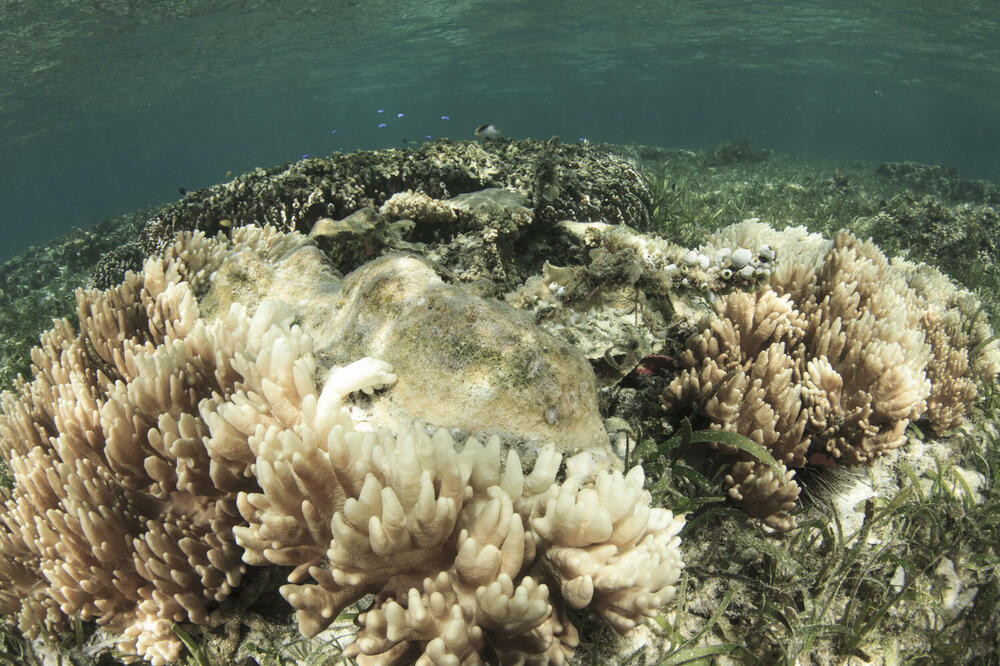The sounds of the natural world are fading faster and will become "acoustic fossils" without urgent action to stop the destruction of the environment, international experts have warned, the Guardian writes.
As technology evolves, sound is becoming an increasingly important way of measuring the health and biodiversity of ecosystems: our forests, soils and oceans produce their own acoustic signatures.
Scientists who use ecoacoustics to assess habitats and species say silence is occurring in thousands of habitats as the planet experiences extraordinary losses in species density and diversity.
Along with them, many familiar sounds disappear or lose their volume: the morning call of birds, the rustling of mammals through the bushes and the buzzing of insects in summer.
Today, listening to some ecosystems reveals a "deadly silence", said Professor Steve Simpson, from the University of Bristol. "It's a race against time - we've only just discovered that they make these sounds, and yet we hear the sound disappearing."
"The changes are profound. And they are happening everywhere," said American soundscape recordist Bernie Krause, who has recorded more than 5.000 hours of recordings from seven continents over the past 55 years. He estimates that 70 percent of his archive is from habitats that no longer exist.
Professor, Brian Pijanovski, from Purdue University in the USA has been listening to natural sounds and recording recordings from almost all the world's major ecosystems for 40 years.
He said: "The sounds of the past that have been recorded and preserved represent the sounds of species that may no longer be here - so that's all we have. The recordings that many of us have (are) places that no longer exist and we don't even know which are those species. In that sense they are already acoustic fossils."
Numerous studies are now documenting how natural soundscapes are being altered, disrupted and silenced. A 2021 study in the journal Nature of 200.000 sites across North America and Europe found "a pervasive loss of acoustic diversity and intensity of soundscapes on both continents over the past 25 years, driven by changes in species richness and abundance."
The authors added: "One of the fundamental ways humans are in touch with nature is in chronic decline with potentially widespread implications for human health and well-being."
Ecosystem sound changes occur in the air, forests, soil, and even underwater. During the Cold War, the US Navy used underwater surveillance systems to track Soviet submarines - and found they struggled to do so near coral reefs because of all the noise the reefs made. It was not until 1990 that civilian scientists could listen to this classified data.
"Whenever we'd go to a healthy reef, it would blow us away — that cacophony of sounds we'd hear," said Simpson, who has been monitoring coral reefs with hydrophones for more than 20 years. "A healthy reef was a carnival of sound."
At the beginning of his research, noise from motor boats was his main concern, but 2015 and 2016 brought significant bleaching processes, leading to 80% coral mortality. "They cooked the reef," he said. More than half of the world's coral reef cover has now been lost since 1950. If global warming reaches 2C, more than 99% of coral reefs are expected to begin dying, the Guardian reports.
The result of these bleaching processes is "deathly silence," Simpson said. "We swam around those reefs crying into our masks".
Canadian acoustic ecologist, Hildegard Westerkamp, said that these sounds and silences speak to us so clearly - like when we look at our reflection in a mirror. She recorded soundscapes for half a century, during which time wildlife populations declined by an average of nearly 70 percent.
She said, "The act of listening itself can be both comforting and very unsettling. But most importantly, it tends to connect us to the reality of what we're dealing with."
Sound data is now used alongside visual data as a way to monitor the conservation and health of ecosystems. More sophisticated and cheaper recording equipment - as well as growing concerns about environmental destruction - are driving a boom in ecoacoustic monitoring.
As microphones have grown in sophistication, scientists are using them to monitor life that would normally be inaudible to human ears. Markus Meder, an acoustic ecologist and sound artist from Switzerland, investigates the sounds that trees make under stress, pushing a microphone into the tree's bark to listen to the living tissue. Stress sounds like a pulse coming from a cavity, he said.
When he first placed a microphone in the soil of a mountain meadow, he found that it too was alive with noise, "a whole new realm of sound".
Agricultural land that is intensively treated, often doused with pesticides, sounds very different, Meder said: "The soil becomes quiet."
For many researchers, disappearing soundscapes are a source of sadness as well as scientific interest. "It's sad to deal with, but it also helps to tell the story of the beauty of nature," Pjanovski said. "As a scientist, I have problems explaining what biodiversity is, but if I play the video and say what I'm talking about - those are the voices of this place. We can either work to preserve it or not."
"Sound is the most powerful trigger of emotions for people. Acoustic memories are also very strong. I think about it as a scientist, but it's hard not to be emotional".
Touch the acoustics of nature with a video of the sounds of the rain forest that, recorded and preserved, represent a real treasure, or even better: if you are able to go out, stop and listen to the sounds, stop a moment in time to be alone with nature, with the hope that silence will never fill that green space.
Let sound be imperative for you when you need to raise awareness of the importance of preserving our environment. Nature is part of us and we are part of nature, so both she and we - let's be loud.
Bonus video:




